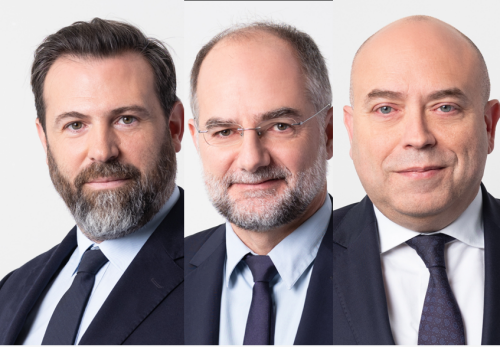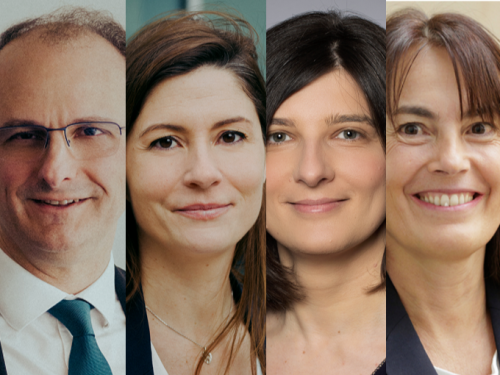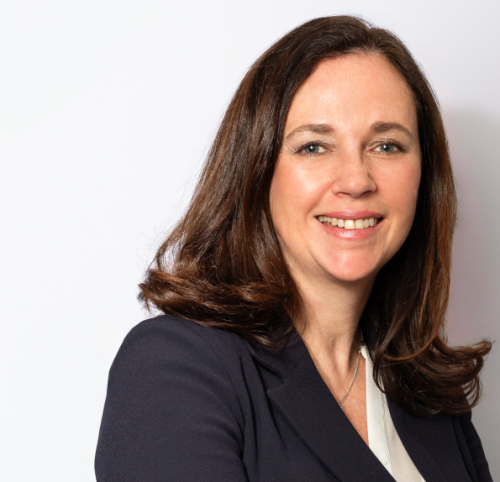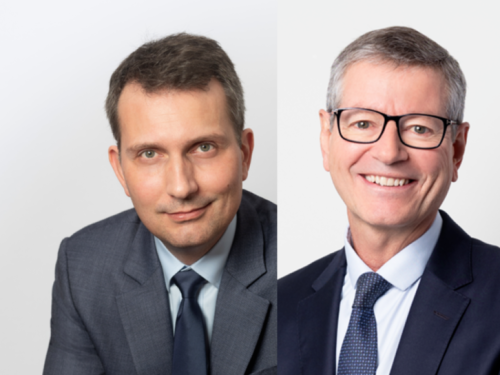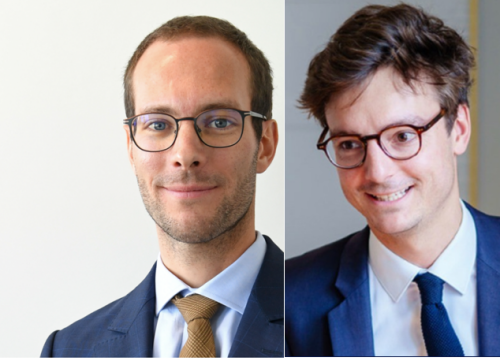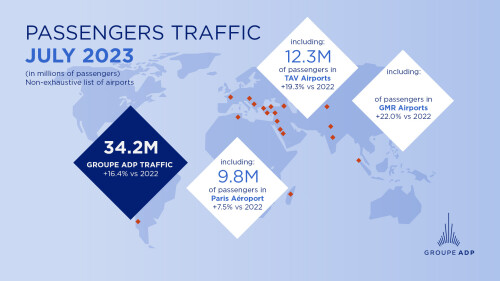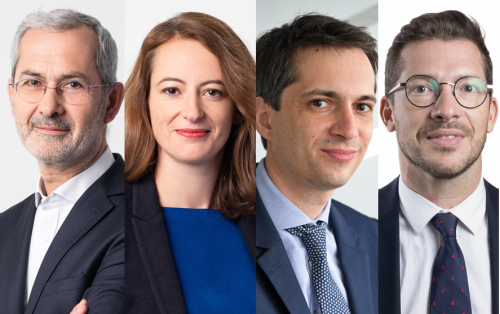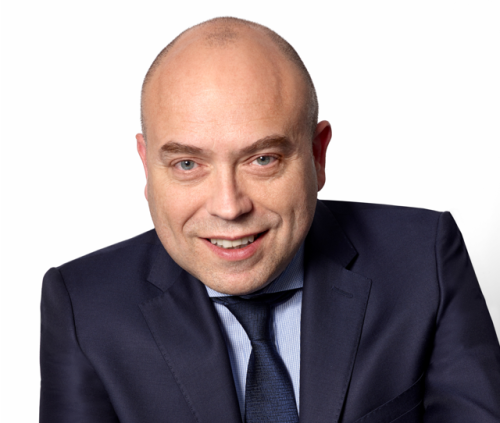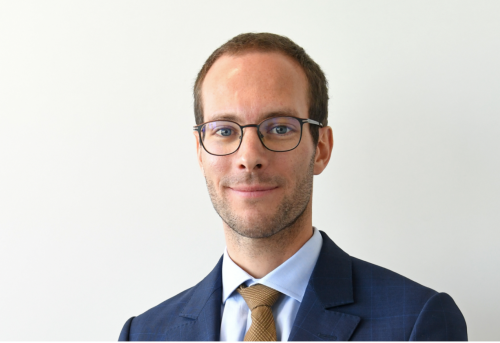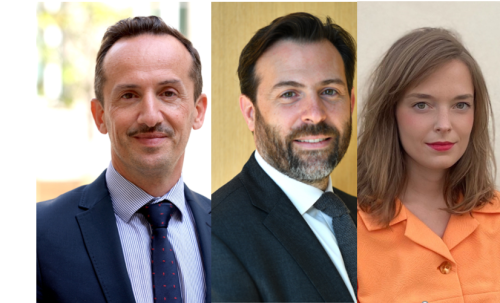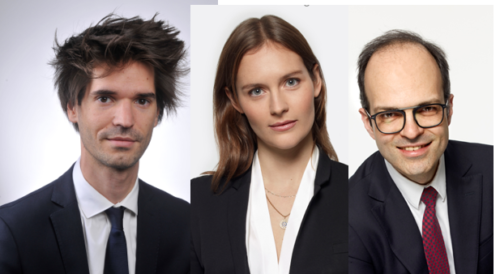Groupe ADP has adopted a 2022-2025 strategic roadmap to build the foundation of a new airport model geared towards sustainability and performance, in line with societal and environmental expectations. This strategic roadmap is associated to a financial trajectory.
In this long-term vision, the group wishes to make its airports multimodal and energy hubs designed and operated in a sustainable way. It aims at excellence in hospitality and fluidity for its passenger customers and operational and environmental performance for its airline customers.
Finally, it develops a multi-local approach to a culture of innovation and responsibility by placing its action at the heart of the regions in which it operates.
The "2025 Pioneers" strategic roadmap is a first step in this long-term transformation by defining the priority projects and actions for the period 2022-2025. It proposes 20 objectives [1] for 2025, divided into 3 strategic priorities:
At the heart of the industrial transformation initiated for 2025 Pioneers is the evolution of airports towards multimodal and energies hubs:
This roadmap is set at the group level. It is shared with TAV Airports, the GMR Airports roadmap will resonate with 2025 Pioneers. This roadmap is based on a financial trajectory allowing the Group to return, by 2025, to its pre-crisis performance under the impulse of the gradual return of traffic to 2019 levels and of a strong financial discipline in operations and investments.
This consolidated financial structure should enable the Group to guarantee a fair return to its shareholders, with a level of dividend pay-out equivalent to the one offered before the crisis.
A gradual return of traffic to 2019 levels
The Groupe ADP expects a gradual return of traffic to pre-crisis levels, faster abroad than in Paris Aéroport, given the expected dynamics of TAV Airports and GMR Airports.
It therefore assumes Group traffic in 2022 to be between 70% and 80% of the 2019 level and expects a return to the 2019 level between 2023 and 2024.
Similarly, it assumes that Paris Aéroport's traffic will be in 2022 between 65% and 75% of the 2019 level, in 2023 between 85% and 95%, in 2024 between 90% and 100%, and in 2025 between 95% and 105%. The level of traffic reached in 2019 should be recovered between 2024 and 2026 and exceeded from 2026 onwards.
A commercial strategy for value creation and customer satisfaction
The Groupe ADP is launching a new retail and hospitality concept and brand, called Extime. Extime capitalises on all the know-how deployed for several years in the Paris hubs and in the Group, and regroups it in a single brand, in order to make it an instrument of international conquest, within and outside the Groupe ADP's airports.
The preferred deployment model is that of a franchise, with a franchisor, Aéroports de Paris, providing the Extime franchise and its know-how to franchisees.
The value creation strategy is based on 4 levers: (i) stimulating contributing traffic via an ambitious Aviation Marketing policy focused on the most contributing destinations, including China; (ii) stimulating demand ahead of the arrival at the airport via a high-performance digital ecosystem consisting of a loyalty programme Extime Reward and Extime Pass, as well as a marketplace www.extime.com; (iii) an integrated business model, with the majority of operations carried out by companies at least 50% owned by the Group, bearing the Extime name, and being genuine champions in their field of activity with optimised business models; and (iv) a field of expression mainly in the airside area of airports in places called "Boutique Terminaux", which aim for excellence in design and architecture, in service and reception, and in the range of brands and concepts.
This new, more comprehensive strategy for retail and hospitality in the airside area is leading to a change in the definition of Sales per passenger, which will now include all retail activities in the restricted area: shops, bars and restaurants, foreign exchange & tax refund counters, commercial lounges, VIP reception, advertising, and other paid services [2].
The objective is to move, according to this new scope, from €25.3 per passenger in 2021 to €27.5 per passenger in 2025.
Discipline to promote a gradual return to the financial performance of 2019
ADP SA's operating expenses are expected to decline from €32 per passenger in 2021 to between €16 and €18 in 2024 and 2025, close to identical to the 2019 level.
Under the positive effects of the anticipated recovery in traffic described above, the new commercial strategy and the cost control policy, Groupe ADP expects to return by 2024 to an EBITDA [3] level higher than that of 2019, i.e. €1,772 million. The EBITDA to revenue ratio should be between 30% and 35% in 2022 and 2023, and between 35% and 40% in 2024 and 2025.
Financial discipline will be reflected in a controlled investment policy, while ensuring that an average investment of more than 50% is secured for the maintenance of assets and for safety and security. Investments will average nearly €1 billion per year between 2022 and 2025 for the Group, and will be between 550 and 600 million euros in 2022, between 750 and 800 million euros in 2023, between 650 and 750 million euros in 2024 and between 800 and 900 million euros in 2025 for Paris Aéroport.
Based on group traffic assumptions between 70% and 80% and Paris Aéroport traffic between 65% and 75% in 2022 compared to 2019 levels, Groupe ADP anticipates a positive Net Result Attributable to the Group from 2022 onwards.
Finally, from 2023 onwards, group plans a dividend policy based on a pay-out ratio of 60% of the Group's share of the Net Result Attributable to the Group, in line with the pre-crisis level, supplemented by the introduction of a pay-out floor set at €1 per share in 2023 and €3 per share in 2024 and 2025.
Groupe ADP's net debt to EBITDA ratio is expected to decline from a range of 6x to 7x in 2022 to a range of 4.5x to 5x by 2025.
Augustin de Romanet, Chairman and CEO, said:
"After a period marked by an unprecedented crisis that has had a lasting impact on the air transport sector, Groupe ADP wishes to promote a new long-term airport model that will create sustainable value for the company and the territories and provide a new impulse for its employees and the entire airport community. It intends to build its leadership by relying on a pioneer approach to the global and structural transformation of its activities and businesses. The "2025 Pioneers" strategic roadmap, which for the first time is group-wide, proposes 20 objectives, testifying, by 2025, of the implementation of the first concrete actions of this long-term transition. This strategic roadmap is part of a financial trajectory characterised by the gradual return of traffic to the 2019 level as well as a demanding financial discipline in terms of cost evolution and investment control which should enable Groupe ADP to return to its pre-crisis financial performance level by 2025. The deployment on retail and hospitality activities of the new Extime strategy, in Paris then abroad, will be decisive in the group's search for competitiveness thanks to the implementation of a franchise concept that is new to the airport industry. Extime carries a promise of excellence not only in terms of retail performance and customer satisfaction, but also in terms of profitability and productivity of retail operations. As a result, Groupe ADP will be able to guarantee a fair return of its value creation to all its shareholders."
In this long-term vision, the group wishes to make its airports multimodal and energy hubs designed and operated in a sustainable way. It aims at excellence in hospitality and fluidity for its passenger customers and operational and environmental performance for its airline customers.
Finally, it develops a multi-local approach to a culture of innovation and responsibility by placing its action at the heart of the regions in which it operates.
The "2025 Pioneers" strategic roadmap is a first step in this long-term transformation by defining the priority projects and actions for the period 2022-2025. It proposes 20 objectives [1] for 2025, divided into 3 strategic priorities:
- An industrial ambition: One ambition, "imagining the sustainable airport of tomorrow"
- A multi-local approach: One Group, "build a global, integrated and responsible group"
- A collective dynamic: Shared dynamics, "innovate, support and empower"
At the heart of the industrial transformation initiated for 2025 Pioneers is the evolution of airports towards multimodal and energies hubs:
- which will no longer be a place to fly, but a place where one benefits from renewed connectivity, offering them a choice between different modes of travel (long and short-distance rail, bus, soft mobility, etc.), and where rail-air connections will account for a growing share of the development of Groupe ADP's hubs
- which will host a diversification of our energy activities and the deployment of new clean energies: biomass, green electricity, sustainable aviation fuels, hydrogen;
- which will see existing infrastructures densified and the capacities of stations and multimodal hubs extended, using new innovative and environmentally friendly construction methods;
- which will be integrated into a global urban planning process, by integrating into the heart of the territories on issues of real estate, energy and mobility.
This roadmap is set at the group level. It is shared with TAV Airports, the GMR Airports roadmap will resonate with 2025 Pioneers. This roadmap is based on a financial trajectory allowing the Group to return, by 2025, to its pre-crisis performance under the impulse of the gradual return of traffic to 2019 levels and of a strong financial discipline in operations and investments.
This consolidated financial structure should enable the Group to guarantee a fair return to its shareholders, with a level of dividend pay-out equivalent to the one offered before the crisis.
A gradual return of traffic to 2019 levels
The Groupe ADP expects a gradual return of traffic to pre-crisis levels, faster abroad than in Paris Aéroport, given the expected dynamics of TAV Airports and GMR Airports.
It therefore assumes Group traffic in 2022 to be between 70% and 80% of the 2019 level and expects a return to the 2019 level between 2023 and 2024.
Similarly, it assumes that Paris Aéroport's traffic will be in 2022 between 65% and 75% of the 2019 level, in 2023 between 85% and 95%, in 2024 between 90% and 100%, and in 2025 between 95% and 105%. The level of traffic reached in 2019 should be recovered between 2024 and 2026 and exceeded from 2026 onwards.
A commercial strategy for value creation and customer satisfaction
The Groupe ADP is launching a new retail and hospitality concept and brand, called Extime. Extime capitalises on all the know-how deployed for several years in the Paris hubs and in the Group, and regroups it in a single brand, in order to make it an instrument of international conquest, within and outside the Groupe ADP's airports.
The preferred deployment model is that of a franchise, with a franchisor, Aéroports de Paris, providing the Extime franchise and its know-how to franchisees.
The value creation strategy is based on 4 levers: (i) stimulating contributing traffic via an ambitious Aviation Marketing policy focused on the most contributing destinations, including China; (ii) stimulating demand ahead of the arrival at the airport via a high-performance digital ecosystem consisting of a loyalty programme Extime Reward and Extime Pass, as well as a marketplace www.extime.com; (iii) an integrated business model, with the majority of operations carried out by companies at least 50% owned by the Group, bearing the Extime name, and being genuine champions in their field of activity with optimised business models; and (iv) a field of expression mainly in the airside area of airports in places called "Boutique Terminaux", which aim for excellence in design and architecture, in service and reception, and in the range of brands and concepts.
This new, more comprehensive strategy for retail and hospitality in the airside area is leading to a change in the definition of Sales per passenger, which will now include all retail activities in the restricted area: shops, bars and restaurants, foreign exchange & tax refund counters, commercial lounges, VIP reception, advertising, and other paid services [2].
The objective is to move, according to this new scope, from €25.3 per passenger in 2021 to €27.5 per passenger in 2025.
Discipline to promote a gradual return to the financial performance of 2019
ADP SA's operating expenses are expected to decline from €32 per passenger in 2021 to between €16 and €18 in 2024 and 2025, close to identical to the 2019 level.
Under the positive effects of the anticipated recovery in traffic described above, the new commercial strategy and the cost control policy, Groupe ADP expects to return by 2024 to an EBITDA [3] level higher than that of 2019, i.e. €1,772 million. The EBITDA to revenue ratio should be between 30% and 35% in 2022 and 2023, and between 35% and 40% in 2024 and 2025.
Financial discipline will be reflected in a controlled investment policy, while ensuring that an average investment of more than 50% is secured for the maintenance of assets and for safety and security. Investments will average nearly €1 billion per year between 2022 and 2025 for the Group, and will be between 550 and 600 million euros in 2022, between 750 and 800 million euros in 2023, between 650 and 750 million euros in 2024 and between 800 and 900 million euros in 2025 for Paris Aéroport.
Based on group traffic assumptions between 70% and 80% and Paris Aéroport traffic between 65% and 75% in 2022 compared to 2019 levels, Groupe ADP anticipates a positive Net Result Attributable to the Group from 2022 onwards.
Finally, from 2023 onwards, group plans a dividend policy based on a pay-out ratio of 60% of the Group's share of the Net Result Attributable to the Group, in line with the pre-crisis level, supplemented by the introduction of a pay-out floor set at €1 per share in 2023 and €3 per share in 2024 and 2025.
Groupe ADP's net debt to EBITDA ratio is expected to decline from a range of 6x to 7x in 2022 to a range of 4.5x to 5x by 2025.
Augustin de Romanet, Chairman and CEO, said:
"After a period marked by an unprecedented crisis that has had a lasting impact on the air transport sector, Groupe ADP wishes to promote a new long-term airport model that will create sustainable value for the company and the territories and provide a new impulse for its employees and the entire airport community. It intends to build its leadership by relying on a pioneer approach to the global and structural transformation of its activities and businesses. The "2025 Pioneers" strategic roadmap, which for the first time is group-wide, proposes 20 objectives, testifying, by 2025, of the implementation of the first concrete actions of this long-term transition. This strategic roadmap is part of a financial trajectory characterised by the gradual return of traffic to the 2019 level as well as a demanding financial discipline in terms of cost evolution and investment control which should enable Groupe ADP to return to its pre-crisis financial performance level by 2025. The deployment on retail and hospitality activities of the new Extime strategy, in Paris then abroad, will be decisive in the group's search for competitiveness thanks to the implementation of a franchise concept that is new to the airport industry. Extime carries a promise of excellence not only in terms of retail performance and customer satisfaction, but also in terms of profitability and productivity of retail operations. As a result, Groupe ADP will be able to guarantee a fair return of its value creation to all its shareholders."
[1] See the detailed list of the 20 objectives in the annex to this press release.
[2] he previous definition was sales from airside shops divided by the number of departing passengers (CA/Pax) in Paris.
[3] Revenue and other ordinary income less purchases and operating expenses excluding depreciation/impairment of tangible/intangible assets.









